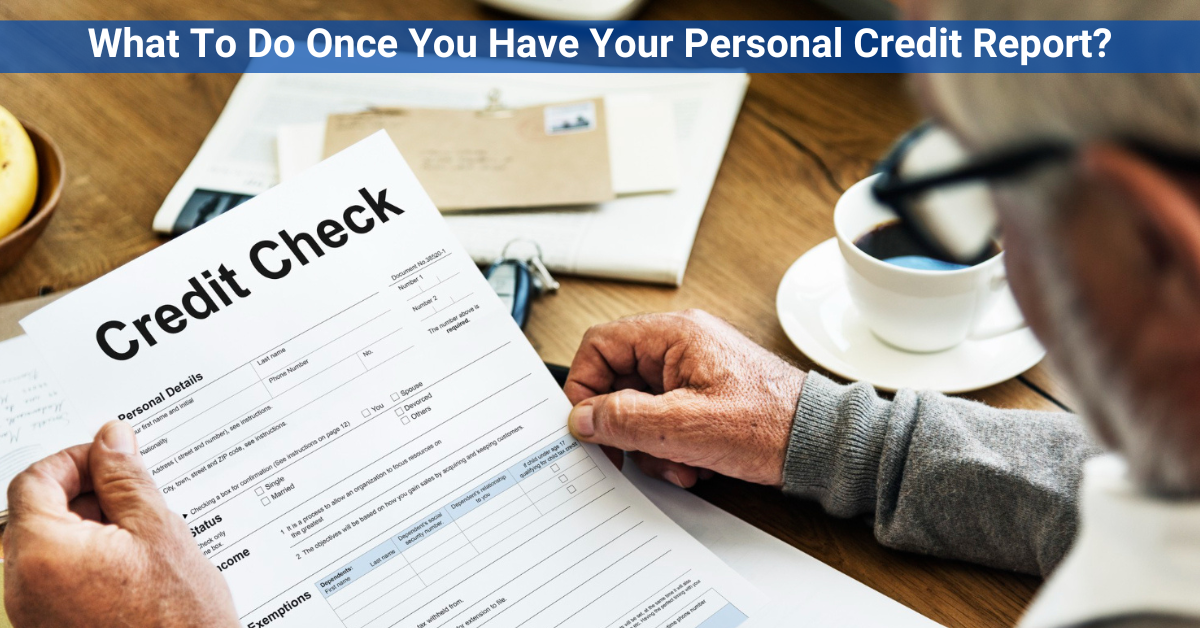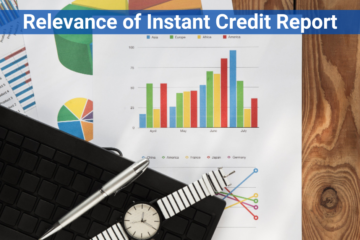What to do with your personal credit report?
Have you seen a free personal credit report online? Chances are- you have. Credit repair ca have many ads wandering on the net; you may have also clicked on one and received it right at your doorstep. However, what are we gonna do after receiving our own personal credit report?
Check for the tiniest bit error you can find on your credit report. It may be your address you don’t live in anymore or your contact number, which you don’t have access to anymore. It can also be as big as a credit account you didn’t even apply for. Or maybe a debt you already paid for appears outstanding in your credit report. You should contact the bureau immediately to correct the error.
Cases like identity theft are common in a credit report, so checking your credit report is essential. You can always take measures if ever you encounter such a credit case. If you believe you are a victim of identity theft, you may contact the credit bureau and police department, and they will keep you in contact with the FBI. Such cases should have fast action. Do you see accounts on your credit report that you don’t know about or any outstanding balances from companies you never heard of? It might be possible that someone is using your information which reflects on your credit report.
Check if someone is checking on you:
Your credit report lists companies and individuals that requested and received a copy of your credit report. Anyone who requests to view your credit report should comply with certain requirements, such as your permission and signature, under the Fair Credit Report Act. “Any person who knowingly and willfully obtained your information on a consumer from a consumer reporting agency under false pretenses shall be fined under Title 18, United States Code, imprisoned for two (2) years, or both. If someone you know who shouldn’t have access to your credit report is listed as someone who obtained it, report it immediately to the credit reporting agency.
According to a recent survey, one in three individuals has never checked their credit report. Surprisingly, 68% of people have found at least one inaccuracy in their credit report, which may lead to higher interest rates or not being approved.
How to report an error:
File a dispute with the credit report if you notice inaccuracies on your credit report. You can file online or by mail.
When you choose to mail a dispute, make sure to complete all the documents needed and to make sure that you send only copies of the original documents. These documents that you sent will not be returned to you. They will use it to investigate your dispute.
Some information is needed, such as:
1. Your complete name
2. Your address and,
3. Your contact number
4. Copy of the items needed to dispute
5. Dispute letter
All the important matters should be well written when writing a dispute letter.
What should be included in a dispute letter? Your letter should:
1. Identify each item you dispute
2. State the facts
3. Explain why you dispute the information. And,
4. Ask that the business that supplied the information take action to have it removed or corrected.
Additionally, make sure to include supporting documents that support your dispute.
Companies like credit repair companies in Toronto help you achieve a clean and healthy credit report. They restore your credit report like nothing happened. You just have to have self-discipline in terms of handling your finances.
A credit report is significant device moneylenders use to assist with deciding if to give you credit. A free online credit report is a significant device that you can use to ensure your acknowledge report is pretty much as spotless as it ought to be.
Your credit report might contain the accompanying monetary data:
1. Non-sufficient funds payment or bad cheques.
2. Chequing and saving accounts closed “for cause” due to money owing or committed fraud.
3. Credit you use includes credit cards, retail cards, lines of credit, and loans.
4. Debt sent to collection agencies.
5. Inquiries from lenders and others who have requested your credit report in the past three years. And so on.
Your credit report contains actual data about your charge cards and advances, for example:
1. When you opened your account.
2. How much do you owe.
3. If you made your payments on time.
4. If you missed your payments.
5. If your debt has been transferred to a collection agency.
6. If you went over your credit limit.
7. Personal information that’s available in public records, such as bankruptcy.
For a better understanding of your credit report, here are the codes that are used in your credit report.
What do letters mean in a rating on your credit report?
- “I” for Installment credit like car loans. You pay for your borrowed money for a specific time until you repay your loan.
- “O” for Open Status Credit like mobile phone account. You can loan money up to a certain limit whenever you need to.
- “R” Revolving or Recruiting Credit. You can borrow money on an ongoing basis within your credit limit. You pay according to how much you spend on a specific duration. For example, credit cards.
- “M” for Mortgage Loan. Information about your mortgage might appear on your credit report.
The numbers on your credit report mean:
0- Too new to rate. Approved but not yet used.
1- Paid within 30 days. Pays as agreed.
2- Late payments: 31-59 days late
3- Late payments: 60-89 days late.
4 -Late payments: 90-119 days late.
5- Late payments beyond 120 days.
6- This code isn’t used.
7- Making regular payments using the following debt management options:
- consolidated orders
- orderly payment of debt.
- consumer proposal
8-Repossession
9-Considered as bad debt or bankruptcy.
Life after consumer proposal is easier when you found the right company for you.




